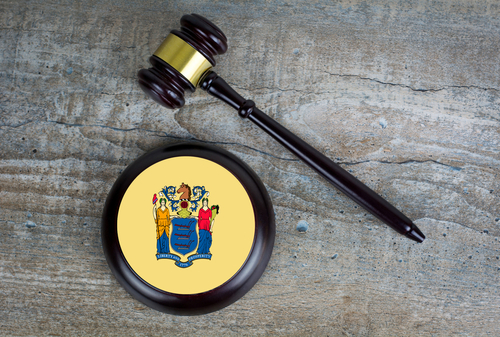Weekly Briefs: 'Zero matrimonial knowledge' judge gets reprimand; judge adopts AI policy

Image from Shutterstock.
Judge sanctioned after disclaiming family law knowledge
The New Jersey Supreme Court publicly reprimanded Judge Michael J. Kassel of the Camden County Superior Court in New Jersey on Wednesday for telling litigants that he was unfamiliar with their cases and with matrimonial law. In one case, he said he has “zero matrimonial knowledge.” Kassel made the comments when he was on a temporary assignment to the court’s family division in 2021, according to a presentment. He was also accused of appearing in an online hearing without his judicial robe and with his legs propped up on a desk. (Law360)
Judge bars AI-drafted filings without human check
U.S. District Judge Brantley D. Starr of the Northern District of Texas has issued an order that lawyers can’t use artificial intelligence to help draft legal filings—unless they check the output for accuracy. Starr told Reuters that he drafted the order because tools such as ChatGPT “are prone to hallucinations and bias,” and they can “make stuff up—even quotes and citations.” (Reuters, Ars Technica, the Volokh Conspiracy)
‘Medical emergency’ wording dooms 2 abortion bans
The Oklahoma Supreme Court on Wednesday overturned two abortion bans because they require a “medical emergency” before the procedure can be performed. The state supreme court cited its March decision holding that the Oklahoma Constitution protects the right to abortion when needed to save the life of a pregnant woman. As a result of the new decision, doctors don’t have to wait for their life-threatening condition to get worse before performing an abortion. A different 1910 law banning abortions remains in place in the state, according to Republican Oklahoma Attorney General Gentner Drummond. It allows abortions when necessary to preserve the life of the pregnant woman. (The Associated Press)
Border cellphone searches require warrant, judge says
A warrant is required to copy and search a traveler’s cellphone during a border crossing, according to U.S. District Judge Jed S. Rakoff of the Southern District of New York. Rakoff nonetheless upheld the search of Jatiek Smith’s phone because border agents had an objectively reasonable belief that it was allowed and because the government obtained a warrant to search the phone copy. Rakoff is the first judge to hold that a warrant is required, according to the Electronic Frontier Foundation. Two federal appeals courts, however, have already ruled that a warrant is required in certain circumstances, the EFF reports. The 9th U.S. Circuit Court of Appeals at San Francisco has ruled that a warrant is required for any device search at the border that seeks anything other than digital contraband, such as child pornography. And the 4th Circuit at Richmond, Virginia, has held that a warrant is required for a forensic device search at the border in support of a domestic criminal investigation. (Electronic Frontier Foundation press release, Rakoff’s May 11 opinion)
Plaintiff drops privacy-invasion suit against Baker Donelson
A plaintiff has dropped her lawsuit accusing Baker Donelson and American Family Insurance of conspiring to spy on her with illegally placed devices. Luisa Cruz Mezquital had claimed that investigators attached GPS devices to her vehicles and mounted cameras on her property to gather evidence about the extent of her claimed injuries in a previous suit against a driver insured by American Family Insurance. Cruz Mezquital’s lawyer, Ben Brodhead, told Law360 that the privacy suit had been resolved but did not provide further information. (Law360)



